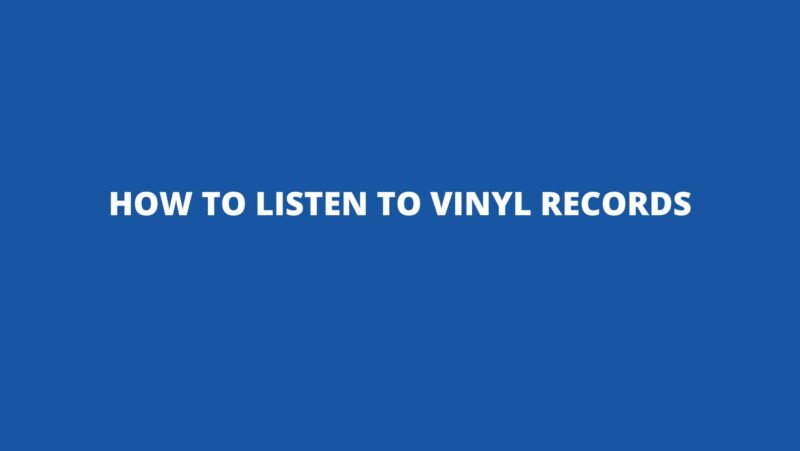Vinyl records are a beloved format for listening to music. They offer a warm, analog sound that is not possible with digital formats. However, vinyl records can be fragile, and it is important to take care of them properly.
Here are the steps on how to listen to vinyl records:
- Clean your records. Before you play your records, it is important to clean them. This will remove any dust or dirt that could damage the record or needle. You can use a soft brush or a record cleaning solution to clean your records.
- Set up your record player. Make sure that your record player is properly set up. This includes adjusting the tracking force and anti-skate. The tracking force is the amount of pressure that the needle applies to the record. The anti-skate is a setting that helps to prevent the needle from skipping.
- Place the record on the turntable. Gently place the record on the turntable, making sure that the label is facing down.
- Lower the needle. Use the cue lever to lower the needle onto the record.
- Enjoy your music! Once the needle is down, you can sit back and enjoy your music.
Here are some additional tips for listening to vinyl records:
- Use a good quality record player. A good quality record player will produce better sound quality.
- Replace the needle regularly. The needle is a delicate piece of equipment and it will wear out over time. Replace the needle regularly to ensure that you get the best possible sound quality.
- Store your records properly. Store your records in a cool, dry place. This will help to prevent them from warping or getting damaged.
- Avoid playing scratched records. Scratched records can damage the needle and the record. Avoid playing scratched records if possible.
By following these tips, you can enjoy your vinyl records for many years to come.
Here are some additional things to keep in mind about listening to vinyl records:
- The sound quality of vinyl records is often described as being warmer and more natural than digital formats. This is because vinyl records are an analog format, while digital formats are a digital format.
- Vinyl records can be more expensive than digital formats. However, many people believe that the improved sound quality is worth the extra cost.
- Vinyl records can be more fragile than digital formats. This is because they are made of physical media that can be damaged by scratches, dirt, and dust.
- Vinyl records can be more difficult to store than digital formats. This is because they are larger and more delicate.
Despite these drawbacks, vinyl records remain a popular format for listening to music. Many people enjoy the ritual of playing vinyl records and the warm, analog sound that they produce.


